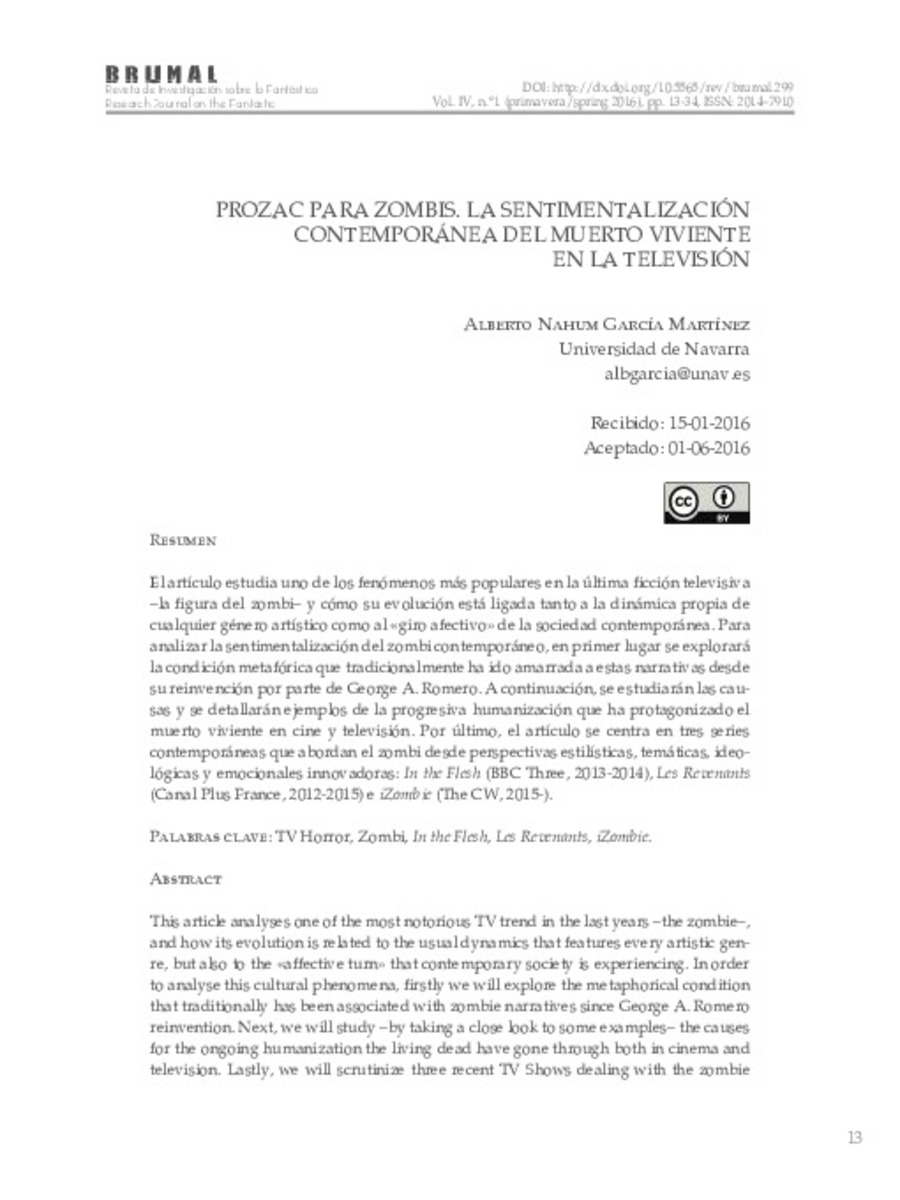Prozac para zombies. La sentimentalización contemporánea del muerto viviente en la televisión
Palabras clave :
Television Studies
Zombies
Emotional Culture
Materias Investigacion::Comunicación
Fecha de publicación :
22-ene-2016
Nota editorial :
Se permite y se anima a los autores a difundir sus trabajos electrónicamente (por ejemplo, en repositorios institucionales o en su propio sitio web) antes y durante el proceso de envío, ya que puede dar lugar a intercambios productivos, así como a una citación más temprana y mayor de los trabajos publicados
Nota:
García Martínez, Alberto Nahum. "Prozac for zombies. The contemporary sentimentalization of the living dead in television." Brumal. Revista de investigación sobre lo Fantástico [Online], 4.1 (2016): 13-34. Web. 30 Jun. 2016
Cita:
García-Martínez, A.N. (Alberto Nahum). "Prozac para zombies. La sentimentalización contemporánea del muerto viviente en la televisión". En . , 2016-01-22,
Aparece en las colecciones:
Estadísticas e impacto
0 citas en

0 citas en

Los ítems de Dadun están protegidos por copyright, con todos los derechos reservados, a menos que se indique lo contrario.







